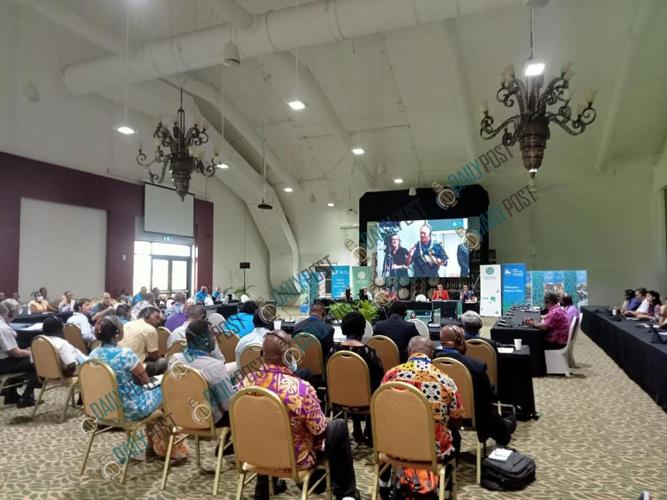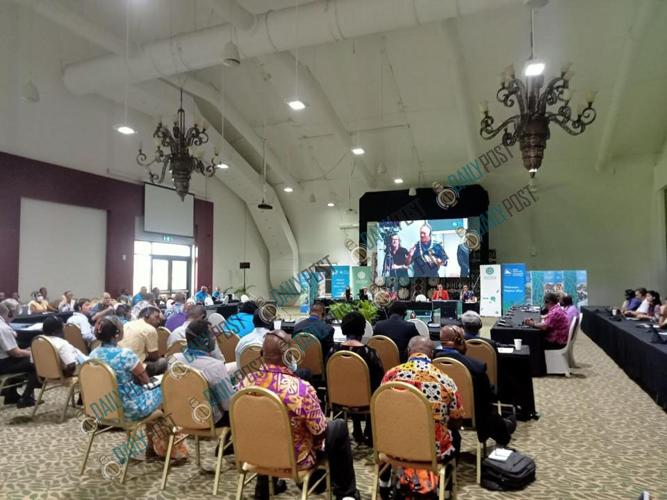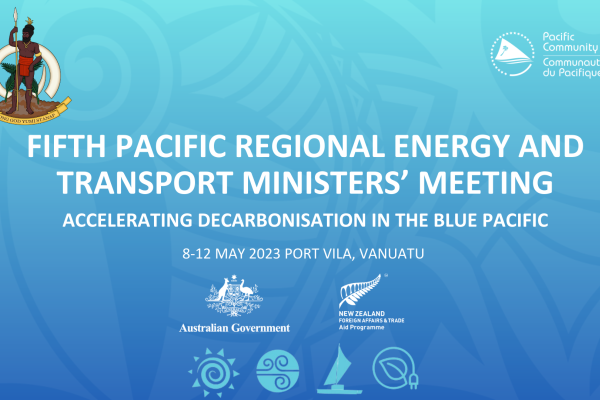(Contenu disponible en anglais uniquement)
This article is reproduced with permission from the Daily Post Vanuatu, written by Ezra Toara

During the initial session of the 5th Pacific Regional Energy Transport Ministerial Meeting held at Le Lagon in Port Vila yesterday, representatives from various countries shared their concerns and challenges with regards to mobility and sustainable transport in their respective nations.
Vanuatu’s Director of the Department of Energy (DOE), Antony Garae, stated that there were no established vehicle standards and a fragmented institutional framework, which impacted the implementation of land transport in the country.
Additionally, roots of transport were not efficient, had an impact on gender and social wellbeing, and the cost was also high.
Garae shared that Vanuatu has four government policies in energy, including the National Sustainable Development Plan, which provides equitable and affordable access and efficient transport to rural and urban centers.
Director Garae stated that Tonga has a National Energy Road Map with one of its objectives being to improve transport in both land and maritime, energy efficiency by ten percent over business as usual by 2030.
In the updated and revised Nationally Determined Contribution (NDC) 2021-2030, the intention is to reduce emissions to the transport sector by ten percent below business as usual. Garae added that there is collaboration between the New Zealand Ministry of Foreign Affairs and Trade (MFAT) and the Global Green Growth Institute (GGGI) to develop fuel and emission standards in Vanuatu to reduce road transport emissions.
Director Garae explained that Vanuatu imports over 60 million litres of fuel/petroleum per year, with approximately 33 million litres of diesel for transport, and there are no regulations on petroleum standards, pricing, and fuels.
Pacific Petroleum adheres to New Caledonia fuel standards, equivalent to Euro 4 standards, and Vanuatu Refuelling Services (VRS) import fuels from New Zealand, which are already Euro 2 and Euro 5 standards. There is no restrictive quality requirement for import apart from left-hand driving, but setting new regulations for vehicles on the road and imported vehicles could be an effective way to reduce emissions, such as an age limit or another proxy requirement.
The institutional review of the transport sector will encourage the adaptation of low emission vehicles and the development of standards and guidelines in specific installations and safety requirements on navy charging infrastructures in Vanuatu.
Vanuatu has established an Air Quality Task Force to develop fuel and vehicle standards, which was launched by the Ministry of Climate Change in February 2021.
The function of the Task Force is to work with relevant stakeholders to establish and enforce air quality standards to monitor, reduce and control the release of pollutants in the air. Members of the Task Force are appointed for two years and come from the Ministry of Climate Change, Department of Environment, Vanuatu Department of Meteorology and Geo-Hazards, Public Works Department, Department of Health, DOE, Public Land Transport Authority, Vanuatu Police Force, and Department of Customs and Inland Revenue.
Frances Kinivuwai, Director of Transport at the Ministry of Commerce, Trade, Tourism, and Transport in Fiji, shared that funding was the biggest issue in Fiji for transitioning fossil fuel vehicles to Electric Vehicles (EVs).
She said that a mindset change was needed among the people to get them to think more about EVs.
The Director suggested stricter vehicle import policies and putting in place measures for the registration of vehicles, as well as finding ways to transition older vehicles out of the country so that EVs could be introduced.

